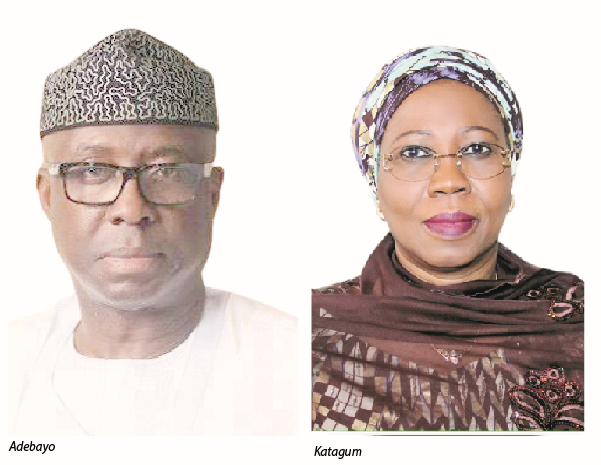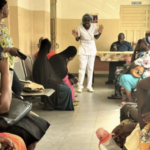At the onset of the administration, the trade and industry sector was severely burdened with inherited challenges that inhibited growth and the maximization of gains. These challenges which included the suspension of the export expansion grant and the pioneer status program, due to concerns of abuse, posed serious barriers to sustainable growth. There were also widespread concerns about the effectiveness of the 25 years old Companies and Allied Matters Act. Most stakeholders held the opinion that the Act had become outdated and did not address contemporary corporate issues and realities. They posited that there were several unfavourable bilateral and multilateral trade agreements in place and that the Nigerian business environment was overall poorly perceived by existing and potential investors.
These challenges were further exacerbated by the global economic downturn, the advent of the COVID-19 pandemic and the fact that the African Continental Free Trade Area Agreement (AfCFTA) was on the horizon with Nigeria relatively unprepared to effectively participate in it.
Interventions
Confronted by a myriad of challenges at the beginning of President Muhammadu Buhari administration in 2015, the ministry began to critically brainstorm on interventions which needed to be activated to achieve short and long term wins. Consequently, the formulation of economic plans and policies; industrialization drive; focus on micro, small and medium scale enterprises; promotion of transparency in the business environment, support for local content in public procurement investment drive and increased trade were prioritized.
The strategy to deliver on these focal areas was to formulate and implement policies and programs to attract investment, boost industrialization, increase trade and exports, and develop enterprises. This renewed goal was anchored on the centrality of its role within the Nigerian economy as expressed across four thematic areas which are to build Nigeria’s industrial base, engender confidence in economic activities, create enabling environment for business success and keep Nigeria’s wheels of commerce running.
To build a strong and sustainable industrial base, funding was dedicated to industrial enterprises at single-digit interest rates through the Bank of Industry (BOI), while the Small and Medium Enterprises Development Agency of Nigeria (SMEDAN) focused on the development of the over 40million MSMES that provide more than 80% of Nigeria’s employment. In the same vein, the Nigerian Export Processing Zones Authority (NEPZA) worked to develop infrastructure for free trade zones as well as issued licenses to public and private sector developers, while citizens were equipped with requisite skills for industry by the Industrial Training Fund (ITF). These efforts were complemented by the National Sugar Development Council (NSDC) and National Automotive Design and Development Council (NADDC), which drove backward integration of priority products with policy support from the Industrial Development Department.
The task of stimulating confidence in economic activities was intensified through the Standards Organisation of Nigeria (SON) which deepened efforts at testing and certifying both local and imported products through its Conformity Assessment Programme. This helped to check the influx of substandard products into the Nigerian market, while the weights and measures department ensured that all commercial measurement devices such as, scales, pumps, measuring bowls are accurate in order for Nigerians to get value for their money. On the other hand, the Federal Produce Inspection Service worked to guide against export of substandard good from the country, while the Federal Competitive and Consumer Protection (FCCPC) stepped up efforts and protecting consumer rights and ensuring competitive markets.
Furthermore, as part of efforts to deliver on its role of creating enabling environment for businesses success in Nigeria, the Corporate Affairs Commission’s (CAC) services and processes were improved on to register companies and other corporate organizations, after certifying the entities and their promoters fit and proper, while the Nigerian Investment Promotion Council (NIPC) meticulously oversaw the issuance of pioneer status to incentivise investments in priority sectors. These efforts were complemented with the Export Expansion Grant scheme carried out by the Nigerian Export Promotion Council (NEPC), to promote business success in the country.
These synchronized efforts have paid off in keeping the wheels of Nigeria’s commerce running in the last eight years; and further complemented by the Nigerian Office for Trade Negotiations (NOTN) which aggressively lead Nigeria’s trade negotiations and keeping the country’s trade policy framework up to date and competitive.
Notable Achievements
By strategically adopting a synergized approach to addressing challenges with the simultaneous deployment of interventions across the sector’s value chain, the sector was able to play a central role in delivering on the economic component of the Buhari administrations 9-point agenda. The development of a strategic blueprint with an overall aspiration of accelerating the diversification of the Nigerian economy for growth, job creation and poverty alleviation, helped the ministry to deliver on its mandate.
The blueprint comprised four strategic pillars of industrialization; Micro, Small and Medium Enterprises (MSME) growth; investment acceleration and trade promotion. It also had three key enablers namely – process digitization, implementation of anti-smuggling measures and deployment of a delivery framework. A robust governance structure was put in place as part of an overall execution framework to drive the strategic blueprint, with a daily coordination, facilitation, monitoring, and evaluation assigned to a delivery unit organized around a number of work streams which draws participation from the Ministry’s departments and agencies.
By walking the talk, remarkable achievements were recorded in six specific broad areas, which are by no means exhaustive.

Covid-19 Response: The outbreak of the Coviid-19 pandemic was one that took the world by surprise with even the best of economies, hit hard . Covid-19 induced lockdown had a major disruptive impact on global economies particularly, with regards to the movement of goods and people. This not only affected the operations of businesses but also the supply of much-needed materials including essential drugs. The resulting disruption and chaos is better described as a black swan event – no one anticipated it. Only an agile response was needed to minimize its consequence.
Despite the suddenness of the pandemic, the ministry responded quickly by establishing an emergency operation centre (EOC), to not only facilitate the flow of industrial and trade activities and secure jobs, but also specifically to guarantee the sustained supply of essential commodities. This intervention resulted in saving over 20,000 jobs and ensured that critical items such as ventilators, Personal Protective Equipment (PPEs) and other key products were delivered where needed nationwide.
Furthermore, Nigeria’s response to the COVID-19 pandemic involved the development of the National Economic Sustainability Plan (NESP), a key component of which was the MSME survival fund. It was established to provide support to vulnerable MSME’s, to specifically meet their payroll obligations, thereby enabling them to safeguard existing jobs in the face of the challenge. The Fund which was Chaired by the Minister of State for Industry, Trade, and Investment, Ambassador Maryam Yalwaji Katagum, provided support that saved about half a million jobs, with grants to over 80,000 businesses and support for almost 400,000 artisans and transporters. It also involved free registration of businesses for 250,000 companies with the CAC. Adjudged one of the most successful initiative of the NESP, the MSME survival fund intervention stands to be counted as one that will have long-term impact on business in Nigeria’s history.
Backward Integration: Policies and interventions geared towards backward integration of key products and commodities yielded remarkable success as evident, for instance, in the automotive sector that has attracted investment of about $1 billion and created capacity to produce 400,000 units. Although the passing into law of the draft automotive bill is still being awaited to fully unlock the sector’s full potentials, however, with an eye to the future, the ministry has commenced initiatives to support widespread adoption of electric vehicles with the establishment of three solar powered charging stations in Lagos, Sokoto and Nsukka respectively.
With regards to other products such as sugar, the country has seen the creation of refining capacity in excess of local demand, while the pace of growing sugarcane for processing remains on the increase. About 150,000hectares have been acquired for this purpose, with the establishment of irrigation systems. Similar successes have been recorded with tomato paste, where processing capacity in excess of demand has also been recorded. As the expansion of the agronomy segment of the value chain continues to remain a top national priority, six agro-processing facilities has been established across the country to boost small-scale industrialization.
MSME development: Efforts to overcome lingering challenges faced in the MSME sector gave birth to the National Policy on Micro, Small and Medium Enterprises. The policy among other things, is aimed at providing a framework for resolving issues in this crucial sector. This policy was further complemented with the development of the MSME market Hub to provide seamless interaction between MSMEs and customers.
To further strengthen and transform the Nigerian digital and creative MSME space, the $500 Investment Digital and Creative Enterprises (iDICE) fund was set up with the commitment of key development partners, such as the AfDB, the Islamic Development Bank, Agence Francaise de Development and Nigeria’s Bank of Industry (BOI). The BOI alone, through various intervention programs, has provided financing for about 4.3 million MSMEs in the form of grants and single-digit interest loans. The initiative is a major milestone with immense potential to transform the Nigerian digital and creative MSME space.
Non-oil export: The need to grow non-oil export volumes to diversify the country’s export earnings and create jobs cannot be over emphasized. The Covid-19 pandemic further amplified the imperative to diversify the nations export earnings and build resilience in the economy. A key requirement for this to happen is to ensure that Nigeria’s non-oil export products meet global standards. To address this challenge, the administration established the Nigeria National Quality Policy with the aim of ensuring world-wide acceptance of Nigeria’s products. Implementation of the scheme has commenced through the establishment of the National Quality Council. To ensure sustainable success, the ministry successfully attracted the Afreximbank to construct a first-of-its-kind African Quality Assurance Centre in Ogun State. The Centre was commissioned in December 2022 to deliver world-class quality infrastructure. Additionally, Afreximbank has expressed the intention to construct a Centre each in the Northern and Eastern parts of the country to facilitate business.
The ministry also implemented the N50billion Export Expansion Facility Program (EEFP) to aggressively expand export capacity. About N231billion, in the form of promissory notes, was disbursed to over 160 exporters in the period between 2017 and 2020. The program has trained thousands of farmers on Good Agricultural Practices for exports and about a thousand SMEs on market access. Equally trained under the scheme are about 2,000 women and youths on export readiness and export of digital services.
The effect of these interventions clearly shows up in concrete terms, such that a compounded annual growth rate of over 12% in the value of exports has been delivered. In the fourth quarter (Q4) of 2022 alone, Nigeria witnessed exports of $1.4bn culminating in a record increase in the value of non-oil exports by 40% to $4.8billion. To sustain the momentum, the Zero-oil plan – a blueprint for non-oil export was launched. The blueprint is expected to deliver a 5-year cumulative earnings of $150billion and lift 20million citizens out of poverty.
Ease Of Doing Business/Investment Promotion
Multidimensional approaches were adopted to overcome the investor skepticism inherited at the onset of the administration, as reflected in Nigeria’s low ranking in the World Bank Ease of Doing Business index. Since then, the country has moved up 40 places on the index owing to conscious and focused efforts by the government. Interventions in this regard include, for example, the Presidential Enabling Business Environment Council (PEBEC), chaired by Vice President Yemi Osinbajo and Co-chaired by the Minister of Industry, Trade and Investment, Otunba Adeniyi Adebayo, which has coordinated reforms across agencies and departments to improve the ease of doing business.
The repeal and re-enactment of the Companies Allied Matters Act (CAMA) which now provides a robust framework for reforming identified drawbacks, is another remarkable achievement. The new law has infused efficiency into the CAC resulting in notable changes and improvements in its operations including the drastic reduction in wait time and cost of business registration in Nigeria. To facilitate investments, the Nigerian Investment Promotion Council published the Book of States, which highlights the comparative advantages of each state and investment opportunities therein. The iGuide portal was also launched to provide real time information and guidance on processes and costs of doing business in Nigeria. The combined efforts have translated to obvious growth in foreign direct investment for the country, with significant growth in FDI recorded within the past four years of this administration. The ministry has also recently completed the drafting and validation of Nigeria’s first ever investment policy, expected to be presented to the Federal Executive Council for approval shortly. The strategic document is designed to communicate Nigeria’s priorities, aims, commitments and expectations to the world.
Furthermore, in the drive to attract and retain investments in the country, Investment Promotion and Protection Agreements (IPPAs) have been signed with countries; 5,571 Acceptance Certificates have been issued to over 2,600 companies; over 130 Production Day Certificates have been issued and over 4,000 Export Permit Certificates have been granted, with over 18,000 patents equally granted to companies to protect their intellectual property and enable commercialisation of innovation.
Moving beyond paying lip service to Nigeria’s successful participation in the AfCFTA, the ministry established a National Action Committee to coordinate and guide Nigeria’s implementation strategy. The Committee continues to engage a wide range of stakeholders to ensure that Nigeria is positioned as a net-gainer in the emerging continental trade landscape. In order to address identified lop-sidedness and other gaps, the NOTN – established under this administration to bring proper focus and expertise to Nigeria’s trade negotiations – has done a yeoman’s job of updating the country’s Free Trade Agreement and Mutual Recognition Agreement templates. The revised templates will ensure global acceptance and recognition of Nigeria’s goods and services. The multi-sectoral Enlarged National Focal Point on Trade has also been revived and has yielded positive gains in the country’s participation at both the WTO and AfCFTA negotiations.
Conclusively, while May 29, 2023, marks the end of the President Muhammadu Buhari-led administration and the beginning of another, it is however, expected that if the momentum is sustained, Nigeria will emerge a clear global winner in the near and long-term future. However, potential headwinds should be watched out for, as well as opportunities which must be thoughtfully approached if they are to deliver benefits. For example, AfCFTA and population growth can either be a blessing or an albatross, same way the global energy transition trend can potentially impair the country’s forex earnings. More so, while we have witnessed events such as Ebola, Covid-19 and the Russia-Ukraine war and their implications, no one knows what the next black swan event will be.
Nevertheless, in readiness for what is to come, a deep scanning of the sector shows that a strong foundation has been built to enable the nation resist the shocks. Increasing investor-friendliness, aggressive backward integration, non-oil export drive as well as robust trade architecture are all further strengthened by a host of development policies such as Nigeria’s first ever investment policy, the revised 20-year-old trade policy and the Nigerian Industrial Revolution Plan, in addition to various key sectoral policies, to position the country on an irreversible growth path.






